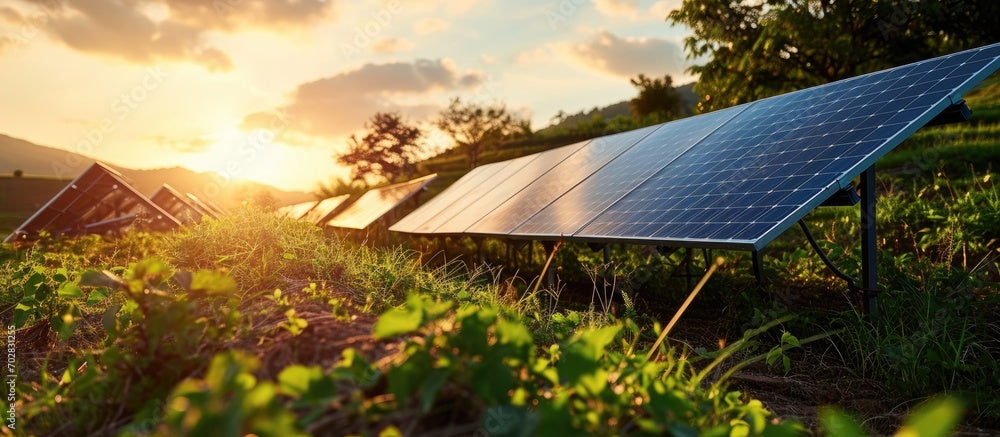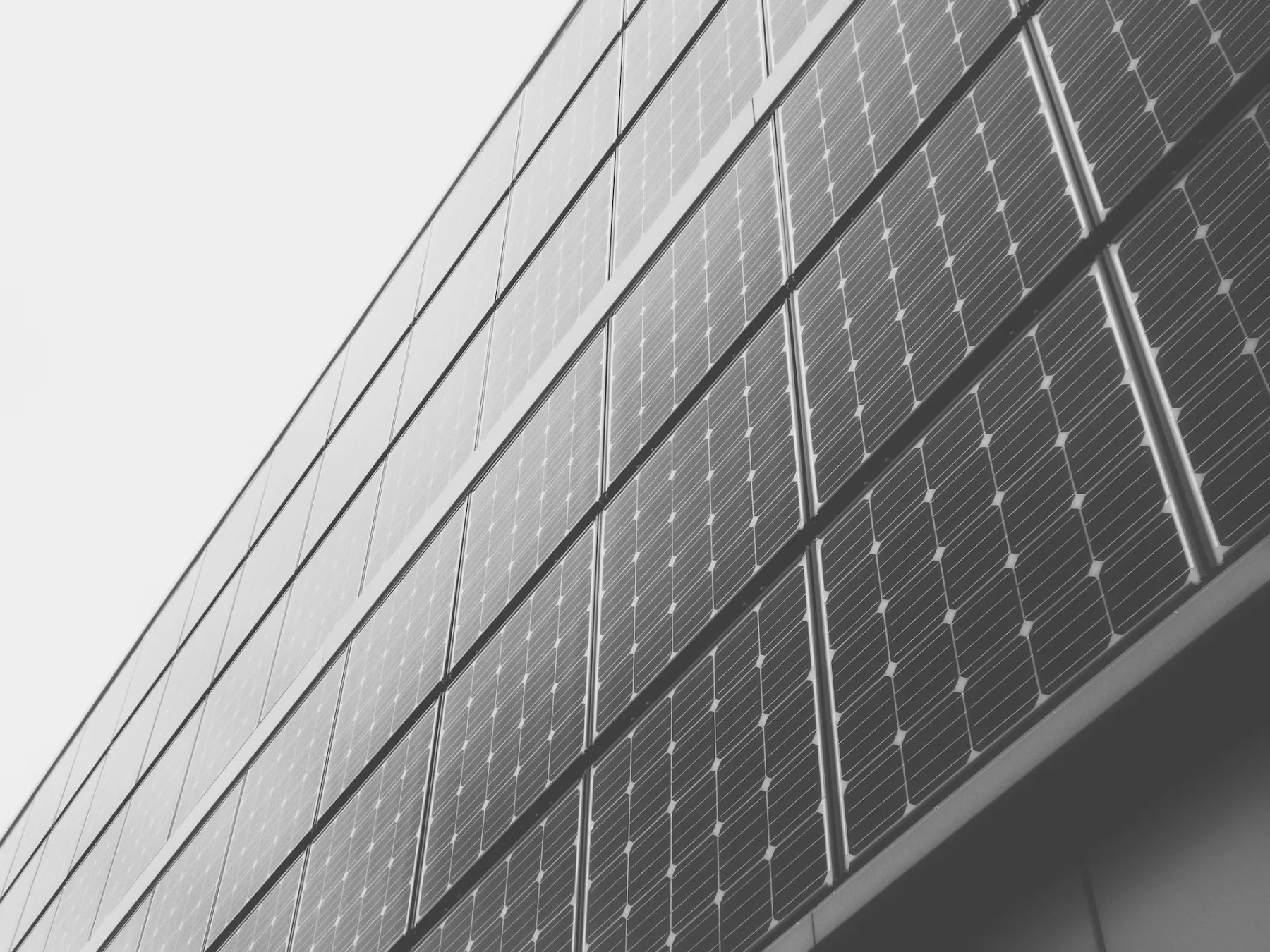Key Takeaways

While scrolling through the endless possibilites in the solar panel market, you've likely encountered the Bloomberg BNEF Tier 1 Manufacturer ranking —a badge of honor in the solar industry. Only 2% of solar brands meet Tier 1 criteria, leaving the remaining manufacturers that might not meet just one of the requirements as Tier 2 and Tier 3. But what exactly does this designation mean, and why should it matter to you as a consumer??
While Tier 1 modules often offer peace of mind regarding performance and support, it's also important to know that plenty of Tier 2 panels make excellent alternatives. These may be from less prominent manufacturers but can still provide robust solutions with potentially lower costs.
Here's what you need to know.
Who is on the Tier 1 Solar Panel Manufacturers List: Updated October 2024
It is important to note that Bloomberg’s Tier 1 listing is revised every quarter, meaning a manufacturer's presence on this prestigious list isn't assured for the entire year.
| 2024 List of Tier 1 Solar Module Brands | ||||
| Manufacturers | Q1 | Q2 | Q3 | Q4 |
| Adani / Mundra | ✓ | ✓ | ||
| AE Solar | ✓ | ✓ | ||
| AKCOME (Jiangsu) | ||||
| AU Optronics | ||||
| Anhui Daheng (DAH Solar) | ✓ | ✓ | ||
| Anhui Huasun | ✓ | |||
| Beyond Sun | ||||
| Boviet | ✓ | |||
| BYD | ✓ | ✓ | ||
| Canadian Solar | ✓ | ✓ | ✓ | |
| CECEP | ||||
| CGS | ||||
| Chint / Astronergy | ✓ | ✓ | ✓ | |
| DAS Solar | ✓ | |||
| Dehui | ||||
| DMEGC | ✓ | ✓ | ✓ | |
| Dongfang | ||||
| Eging | ✓ | ✓ | ✓ | |
| ET Solar Inc / Elite Solar | ✓ | ✓ | ✓ | |
| Exiom Group | ||||
| First Solar | ✓ | ✓ | ✓ | |
| GCL System | ✓ | ✓ | ✓ | |
| Goldi Solar | ||||
| Green Wing | ||||
| Haitai Solar | ||||
| Hanersun | ✓ | ✓ | ✓ | |
| Hansol Technics | ||||
| Hanwha Q Cells | ✓ | ✓ | ||
| Heliene | ||||
| Hevel | ||||
| HT-SAAE | ✓ | ✓ | ✓ | |
| HuaSun Energy | ||||
| Hyundai | ||||
| JA Solar | ✓ | ✓ | ✓ | |
| Jetion | ✓ | |||
| Jinko | ✓ | ✓ | ||
| Jinneng / Jinergy | ||||
| Jolywood | ✓ | ✓ | ||
| Leapton Energy | ✓ | ✓ | ||
| LG Solar | ||||
| LONGi Solar (Longi Green) | ✓ | ✓ | ✓ | |
| Luxen Solar | ✓ | ✓ | ||
| Maxeon (SunPower) | ✓ | ✓ | ||
| Meyer Burger | ||||
| Motech | ||||
| Neo Solar Power (NSP) / Ureco | ✓ | ✓ | ||
| New East Solar Energy | ✓ | |||
| Philadelphia Solar | ||||
| REC Group | ||||
| Recom | ||||
| Renesola Yixing | ✓ | ✓ | ✓ | |
| Renewsys | ||||
| Risen Energy | ✓ | ✓ | ✓ | |
| Runergy / Hyperion | ✓ | ✓ | ✓ | |
| SEG Group | ||||
| Seraphim / SEG | ✓ | ✓ | ✓ | |
| Sharp | ||||
| Shinsung | ||||
| Solar-Fabrik | ||||
| Solargiga | ||||
| Solarspace | ✓ | ✓ | ||
| Sumec / Phono Solar | ✓ | ✓ | ||
| Sunova Solar / Thornova | ✓ | ✓ | ✓ | |
| Sunport | ||||
| Sunpro Power / YH Sunpro | ✓ | ✓ | ||
| Suntech | ✓ | |||
| Swelect | ||||
| Talesun | ||||
| Taoistic Solar | ✓ | ✓ | ||
| Tongwei | ✓ | ✓ | ✓ | |
| Trina Solar | ✓ | ✓ | ✓ | |
| TSEC | ||||
| Ulica Solar | ||||
| UREC | ||||
| Vikram Solar | ✓ | ✓ | ✓ | |
| VSUN Solar | ✓ | ✓ | ||
| Waaree | ✓ | ✓ | ||
| Yingli Silfab | ✓ | ✓ | ||
| ZNShine | ✓ | ✓ | ✓ | |

What is the Bloomberg Tier 1 solar list?
The BloombergNEF Tier 1 ranking is an industry-recognized classification that ranks solar panel manufacturers based on specific criteria established by Bloomberg New Energy Finance (BNEF).
To qualify as Tier 1, manufacturers must not only have a track record of supplying own-brand, self-produced solar panels to at least six different projects, each more than 1.5 megawatts, but also demonstrate bankability, which implies that banks consider these manufacturers stable enough to lend money to projects that incorporate their panels.
The Bloomberg Tier 1 List is updated quarterly, offering a snapshot of the most reputable manufacturers, and is highly regarded as a benchmark for quality and dependability in an evolving market.
What makes a Tier 1 solar panel?
Tier 1 solar panels are part of a rating system that assesses manufacturers' financial stability, production capabilities, and industry longevity. These manufacturers are acknowledged for their strong financial foundations and consistent production of high-caliber solar products.
When a manufacturer achieves Tier 1 status, it signals their reliability, which is crucial for project developers, investors, and customers seeking trustworthy panels. However, the criteria for Tier 1 classification may vary across different rating entities.
How do manufacturers achieve Tier 1 status?
Solar manufacturers are evaluated based on their financial health, production capabilities, and standing in the industry. The tiering system, with Tier 1 being the highest level, is commonly used for classification purposes.
Do you really need a Tier 1 solar panel?
Whether you need Tier 1 panels depends on your specific needs. They offer assurances of stability, reliability, and excellent warranties, but their appropriateness is contingent upon factors like system design, spatial availability, budgetary limits, efficiency needs, and local mandates.
How much more are Tier 1 solar panels?
One can expect to spend between 10% to 30% more on Tier 1 solar panels, although the federal tax credit and additional local state by state incentives can decrease upfront costs.
Are Tier 2 solar panels worth it?
Absolutely. When evaluating whether Tier 2 solar panels are worth your investment, it's important to recognize that they can present an appealing balance between cost and performance.
While they may not carry the same elite status as Tier 1 panels, many Tier 2 brands still offer reliable efficiency and durability. Examples of reputable Tier 2 solar panel brands include Axitec, Aptos, and Mission Solar.
These manufacturers have been able to maintain quality standards while providing more affordable alternatives to customers. They may not have the extensive track record of Tier 1 brands, but they often come with competitive warranties and customer support.
As such, for buyers looking to achieve savings without significantly compromising on performance, Tier 2 panels can still be a worthy consideration, particularly in projects where budget constraints are a key factor.
What Do Tier 3 Solar Panels Offer?
Tier 3 solar panels are generally produced by companies specializing in assembling panels rather than manufacturing them from scratch.
These manufacturers typically take cells produced by others and construct panels by hand, relying on manual soldering processes rather than advanced robotics. As a result, the quality of Tier 3 panels can vary significantly based on the skill of the operators involved.
Investing little to nothing in research and development, Tier 3 companies may not offer the innovation and cutting-edge technology found in higher tiers. While they still provide product and performance warranties, these warranties are often viewed as less robust compared to those of Tier 2 panels.
Shop US Solar Supplier for Panels, Inverters, Energy Storage, and Racking
Why lose time waiting for multiple orders across multiple sites? At US Solar Supplier, it can all be done in one place, from the main module down to the specialty bolt to mount it. Not sure what you need?
Give us a call at 800-203-7004 or contact us via message today!







